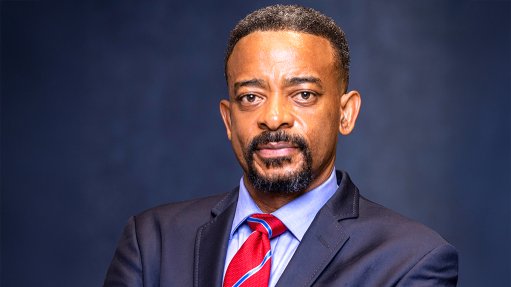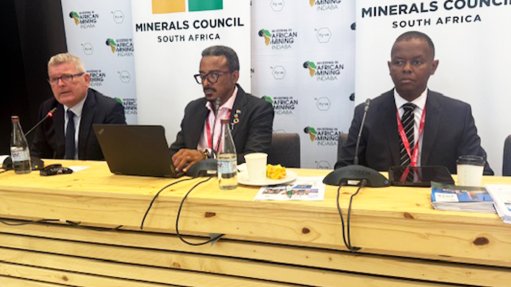BCG roundtable panellists mull solutions to close Africa’s climate finance gap
While investments in green sectors in Africa experienced significant growth from 2017 to 2022, despite volatility and macroeconomic risks, a substantial gap in climate financing remains, which must be addressed to accelerate the growth of these sectors, says Boston Consulting Group (BCG).
Despite contributing the least to the climate crisis, BCG warns that Africa will be the most negatively affected by the impacts of climate change.
Investment of $2.4-trillion is needed to meet Africa’s climate needs by 2030, but only 12% of this funding has been met or committed thus far, posing a significant challenge that must be overcome to ensure a sustainable future for the continent, according to a report by BCG titled ‘More Money, Fewer Problems: Closing Africa’s Climate Finance Gap.’
With this in mind, BCG on August 14 hosted a roundtable discussion during which panellists discussed the findings from the report, as well as recommendations geared towards unlocking financing and investment flow into Africa’s green sectors.
Reflecting on the impact of climate change on Africa, BCG Nairobi climate partner and associate director Katie Hill warned that there was a “tremendous urgency for solutions”, noting that these sectors required considerable amounts of capital.
She pointed out that, while there was potential for the private sector to play a significant role, only 14% of climate finance in Africa came from private capital.
Hill explained that the cost of capital in African countries was higher than in other regions, including countries with a similar risk rating and GDP per capita.
She said investors perceived a greater risk to investing in Africa than in other regions, noting that macroeconomic conditions and volatility contributed to a perception of high risk in Africa, thereby impacting on African companies’ ability to access affordable capital.
Also speaking at the roundtable, BCG Johannesburg partner and MD Warren Chetty said that, while Africa was underutilising its financing capacities on debt and equity, this view was changing.
He posited that debt had a key role to play in climate financing, while equity had a key role in helping to catalyse and unlock some of that debt.
Despite the risks and higher costs of capital, Chetty said greater investment was being committed to climate change mitigation, especially in Africa.
In order to help derisk some of the debt that could unlock the total opportunity and help narrow the existing gap, he highlighted the importance of portfolio value creation.
He also discussed the role of different stakeholders in helping to derisk some of the debt capital instruments available.
He posited that there was a universe of blended finance instruments that, if deployed effectively, could be leveraged to derisk capital for private companies in Africa.
“The key point here is not necessarily what's available, but rather how stakeholders need to come together to help us derisk some of these [investments], to make them attractive for debt providers,” he added.
Meanwhile, Climate Fund Managers CEO Andrew Johnstone stated that, while climate finance was not a new concept, Africa had a lot of “catch-up to do.”
He noted that an absence of predictability contributed to the finance gap.
“Money likes predictability, and predictability is the opposite of variability . . . because variability represents risk, it represents the unknown, and money doesn't like risk. And specifically in Africa, we do not have enough risk-taking capital.
“We have a complete absence of risk-absorbing capital, and while I do appreciate the need for debt because it gives scale, we need risk-absorbing capital because the future is full of volatility. It's full of unknowns which are forced on us by externalities,” he added.
He thus emphasised the need for intent, policy and predictability in this regard.
While there was intent and there were policies in place, Johnstone said continuity of intent and continuity that drove risk-absorbing capital into the market was needed, adding that blended finance could also play a role in this regard.
“How do we fill the gap? We focus on the risk. We don't avoid the risk. We absorb the risk, we allocate it, we structure it, and we price it, and we price it on a continuous basis, and then the capital markets will move,” said Johnstone.
Article Enquiry
Email Article
Save Article
Feedback
To advertise email advertising@creamermedia.co.za or click here
Comments
Press Office
Announcements
What's On
Subscribe to improve your user experience...
Option 1 (equivalent of R125 a month):
Receive a weekly copy of Creamer Media's Engineering News & Mining Weekly magazine
(print copy for those in South Africa and e-magazine for those outside of South Africa)
Receive daily email newsletters
Access to full search results
Access archive of magazine back copies
Access to Projects in Progress
Access to ONE Research Report of your choice in PDF format
Option 2 (equivalent of R375 a month):
All benefits from Option 1
PLUS
Access to Creamer Media's Research Channel Africa for ALL Research Reports, in PDF format, on various industrial and mining sectors
including Electricity; Water; Energy Transition; Hydrogen; Roads, Rail and Ports; Coal; Gold; Platinum; Battery Metals; etc.
Already a subscriber?
Forgotten your password?
Receive weekly copy of Creamer Media's Engineering News & Mining Weekly magazine (print copy for those in South Africa and e-magazine for those outside of South Africa)
➕
Recieve daily email newsletters
➕
Access to full search results
➕
Access archive of magazine back copies
➕
Access to Projects in Progress
➕
Access to ONE Research Report of your choice in PDF format
RESEARCH CHANNEL AFRICA
R4500 (equivalent of R375 a month)
SUBSCRIBEAll benefits from Option 1
➕
Access to Creamer Media's Research Channel Africa for ALL Research Reports on various industrial and mining sectors, in PDF format, including on:
Electricity
➕
Water
➕
Energy Transition
➕
Hydrogen
➕
Roads, Rail and Ports
➕
Coal
➕
Gold
➕
Platinum
➕
Battery Metals
➕
etc.
Receive all benefits from Option 1 or Option 2 delivered to numerous people at your company
➕
Multiple User names and Passwords for simultaneous log-ins
➕
Intranet integration access to all in your organisation


















